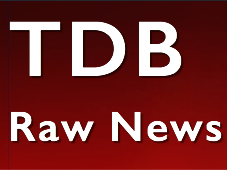Headline: Extreme inequality on the ski slopes of Davos
 As appeared in the Dominion Post, Friday January 24, 2013
As appeared in the Dominion Post, Friday January 24, 2013
In the luxurious ski resort of Davos, business leaders have been confronted with some uncomfortable truths. Just one per cent of the world’s people own 65 times the assets of the poorest 3.5 billion people. It’s enough to make them choke on their canapés.
 This growing divide between rich and poor has become so serious that business leaders converging on the Swiss ski resort of Davos this week have rated it as the highest risk facing the world economy over the coming decade. Extreme concentrations of wealth are not just socially unjust but they stunt long-term economic growth too, making it more difficult to reduce poverty.
This growing divide between rich and poor has become so serious that business leaders converging on the Swiss ski resort of Davos this week have rated it as the highest risk facing the world economy over the coming decade. Extreme concentrations of wealth are not just socially unjust but they stunt long-term economic growth too, making it more difficult to reduce poverty.
Hyper-inequality is not an inevitable outcome. It is a result of political capture that creates wealth for the rich and marginalises others. The rules are rigged through financial deregulation, tax evasion, unregulated monopolies, policies that marginalise women, corruption and excessive profits from mining across rich and poor countries alike. A recent survey in Spain, Brazil, India, South Africa, the UK and the US showed that a majority of people believe that laws are skewed in favour of the rich.
In New Zealand, while the share of income for the top one per cent increases, one in five children live in poverty. In the United States, this one per cent takes a bigger slice of the pie than at any point since the eve of the Great Depression. In India, the number of billionaires has increased tenfold in the past decade. In Europe, poor people struggle with post-recovery austerity policies while moneyed investors benefit from bank bailouts. Africa has had a resource boom in the last decade but most people there still struggle daily for food, clean water and health care.
Extreme inequality is not only a major risk to human progress, it also undermines democratic governance, fuels social unrest and threatens security on a global scale. In 70 years of work fighting poverty and injustice, Oxfam has witnessed first-hand how the wealthiest individuals and groups capture political power at the expense of the rest of society. The lowest tax rates, the best health and education and the opportunity to influence are being given not just to the rich but also to their children. Without a concerted effort to tackle inequality, the cascade of privilege and of disadvantage will continue down the generations, and equality of opportunity will be just a dream.
This trend can be reversed quickly. There are clear examples of success. The US and Europe in the three decades after World War II reduced inequality while growing prosperous. Ghana’s recent Petroleum Revenue Management Bill shows how targeted regulation can promote shared prosperity. Latin America has significantly reduced inequality in the last decade through progressive taxation, public services, social protection and decent work. Central to this progress has been popular politics that represent the majority, instead of being captured by a small minority.
These are issues for us in New Zealand, as well as for developing countries. The Finance Minister, Bill English, is in Davos and has called for international cooperation to ensure that companies like Google, Apple and Starbucks pay their fair share of taxes. That would be a good start, but far more needs to be done to tackle rampant inequality at home and abroad. Governments need to focus on ending extreme poverty, and include it in the new post-2015 agreement being developed through the United Nations. Stronger and better regulation of markets is essential to avoid the boom-bust cycle – speculative profits for the few and the costs of failure borne by the many.
In Davos, the economic elite are being challenged to stop using their wealth to rig the rules and undermine the democratic will of their fellow citizens. They should publish their investments and ensure that decent jobs and living wages are paid throughout all the companies they own or control. They must end the financial secrecy keeping trillions hidden in tax havens. They need to support progressive policies that provide high quality education, health care and social protection for all.
But don’t hold your breath. It’s not the “Masters of the Universe” in Davos who will insist on tackling the deep inequalities that blight our societies. It’s us.
Barry Coates is the Executive Director of Oxfam New Zealand
—





